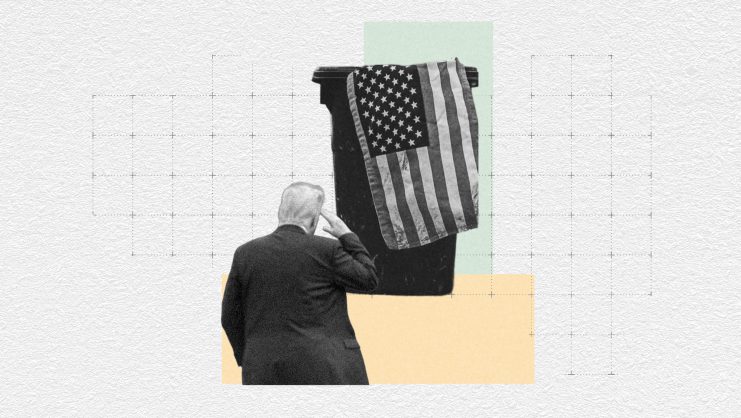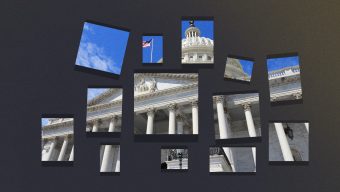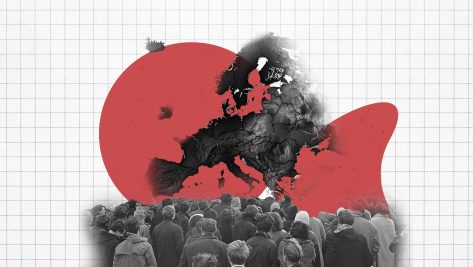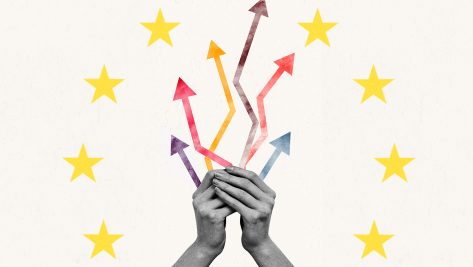It is impossible to write anything these days without referring to the COVID-19 pandemic, because the terrible tragedy is that we continue to witness and suffer this virus, which has already claimed more than half a million fatal victims since it began to spread. It is even more disturbing to know that in many countries a high percentage of these deaths happened in nursing homes, places supposedly designed and equipped to take care of people.
As we plod along in these difficult times, several aspects of the reality of our societies come to the forefront. One of the first is that it is hazardous to take current virus data as scientific evidence. Many governments have presented delayed and distorted information either because of a lack of resources to actually measure the impact of the spread of the virus, or in a grotesque assessment of the situation as an opportunity to exercise political damage control and even to advance a political agenda.
In any case, two salient facts of the overall worldwide management of the pandemic are the unreliability of the virus data as a scientific base and that, despite the unreliable data, we know for certain that nursing homes have suffered a disproportionate number of deaths. These two facts are the two sides of a coin in a currency that no longer has value, because it is no longer serving the people. It seems to be the case that there is a lack of a sensible and respected world system within which governments can act in unity when humanity is in extreme need of unified and responsible responses to world crisis.
This state of affairs, however, had already been recognized in all its cruelty in our recent past. In 2015, 193 Heads of State and Government and High Representatives, formally committed “to end poverty and hunger everywhere; to combat inequalities within and among countries; to build peaceful, just and inclusive societies; to protect human rights and promote gender equality and the empowerment of women and girls; and to ensure the lasting protection of the planet and its natural resources.” This was not simply a rhetorical resource. As they jointly declared, it was “a historic decision on a comprehensive, far-reaching and people-centred set of universal and transformative goals and targets.”
Yet, five years after the adoption of this agenda of “unprecedented scope and significance,” we find that countries are unable to accept basic collaboration schemes to openly share data. Despite this previous commitment to “leave no one behind,” it is proving difficult for the world’s governments to work together and adopt universal measures that could help eradicate, sooner rather than later, the COVID-19 pandemic and thus prevent further disproportional harm to the world’s most vulnerable.
The pandemic has completely altered life as we knew it, and we must deal together with the consequences. The spread of the virus has imposed restrictions on natural human interaction and on the possibility to enjoy emotional exchanges that are vital to our development as human beings. We are far from an accurate estimation of the impact that these restrictions will have on our societies. We are also heading towards a dramatic economic upheaval, with millions of jobs destroyed worldwide and millions of families left without a basic livelihood.
The world has the means and resources to mitigate the impact of this catastrophe. Great scientists have technology at their disposal at an unprecedented level. The international organizations that can host the required deliberations and foster coordinated investigation are available, and, if they require renovation in their procedures and methodologies, there are experts available to both design and implement those improvements. If it is not happening it is not because it is impossible but because the world’s leaders do not have the traits required to tackle the challenge.
The moment calls for leaders who can articulate a compelling vision that steers the world out of this difficult situation. A powerful vision, when it is embraced and supported by a vast majority of the people, works as a common guiding principle that underlines all actions, gives impetus to the development of new behaviours, and restrains damaging egocentric tendencies. At the same time, it can only access this potential when it reflects the priorities and values of the population. Leaders cannot develop this vision in isolation or within the ivory-tower of their inner circle. History has proven that when visions formed through isolated processes are inculcated on the people, they only generate short-term commitments that, far from serving the public interest, often divide societies and generate dangerous conflict. At this present crucial moment, leaders have the immensely demanding task of being able to open up, listen, understand, and then articulate a vision that is strong, honest, and rooted in universal values.
There are, of course, bases to build upon. The 2030 Agenda was the result of many years of work by representatives from all Member States of the United Nations, from all areas of civil societies, ONGs, universities, academic and religious institutions, individuals, and all the United Nations organizations. As a result, in 2015 the world leaders announced, “We will work to build dynamic, sustainable, innovative and people-centred economies, promoting youth employment and women’s economic empowerment, in particular, and decent work for all,” and they recognized that “this will only be possible if wealth is shared and income inequality is addressed.” The enthusiastic reception of this document was ingrained in its clear strategies for practical action and its mechanisms for accountability. However, for these goals to be reached, leaders must be courageous in facing the often strong opposition from entrenched interests, they must be steadfast in reminding the people of the reasons and values that underpin the chosen path, and they must be humble to devote their energy and their capacity to work with others.
This is also a time for creative leaders. These fundamental changes demand innovation. The leaders that the world requires now are not those who champion going back to some supposed past that was better than the present. We need leaders who stand firmly in the present and are focused on the future. Creativity is not the product of individual inspiration. In our complex and interconnected world, creativity and innovation come from the open participation of society and from the consideration of what at first might seem impossible. It requires an open minded approach to examine all options, a fine sensibility to select the best possible innovative course of action, and the dedication and flexibility to continuously evaluate progress and make amends as required.
Vision, courage, persistence, humility, and creativity. Leaders with these characteristics exist today. They are already working in many positions in governments, in private undertakings, in NGOs, in political organizations, and in every walk of life. We hope that the upheaval caused by the sad experience of this pandemic will mobilize democratic societies to elect the leaders with the traits that the times demand.
© IE Insights.











